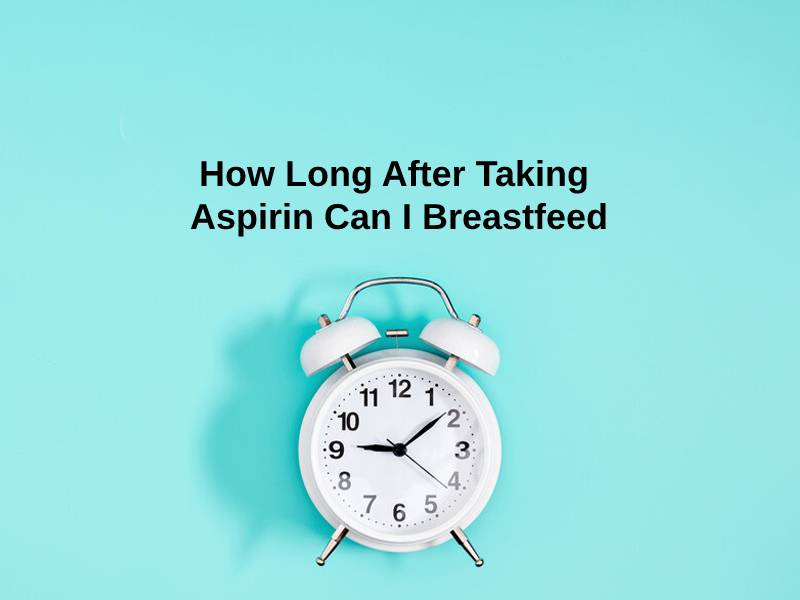Exact Answer: 24 hours
New mothers have a lot on their minds, and if you have an infection that needs to be treated, you might question if metronidazole and breastfeeding are compatible. Your kid could be exposed to this antibiotic through your breastmilk if you are breastfeeding. This article clarifies whether metronidazole is regarded as safe to use while breastfeeding, as well as why it may be harmful.
Antimicrobial metronidazole is used to treat infections. Metronidazole is a drug that is used to treat vaginal infections. Oral, rectal, topical, vaginal, and intravenous forms are available.

How Long After Taking Metronidazole Can I Breastfeed?
| Condition of Baby | Duration of Halt |
| Healthy | 24 hours |
| Premature or low weight | Avoid Metronidozale |
When breastfeeding healthy, full-term infants, metronidazole at regular doses is deemed safe. There is no proven mutagenic or carcinogenic risk to infants breastfeeding from mothers getting standard short-course metronidazole treatment by any route, according to the balance of existing evidence and clinical experience, as well as the consensus of expert opinion.
Oral metronidazole at a low dose of 200-400 mg three times a day yields milk levels that are only slightly lower than those found in maternal plasma (76 to 99 percent). However, dosages up to 500 mg daily for around 8 days course can be regarded as good for breastfeeding mothers.
Single-dose oral metronidazole at a dose of 2 g results in much higher amounts of metronidazole in milk than low-dose oral treatment. The predicted total consumption, on the other hand, is still less than the daily baby dose administered directly. Breastfeeding is thought to be suitable with daily 2 g oral dosages administered for three days.
Although the data is limited, intravenous treatment provides identical maternal plasma and milk levels to corresponding oral doses. Breastfeeding is thought to be suitable with short-course IV metronidazole.

Premature breastfed newborns (t1/2 up to 74 hours) and infants with low birth weight or renal or hepatic impairment should avoid metronidazole exposure. Give the mother an alternative antibiotic if possible; otherwise, use heated donor milk (if available) or milk powder, and reject expressed milk throughout the metronidazole treatment.
Experts debate on whether or not it is safe to use metronidazole during longer-term medication while breastfeeding, however, some sources advise halting breastfeeding for 12 to 24 hours following a single-dose maternal treatment. For some of the illnesses that metronidazole is used to treat, other medicines are available. Although the seller of one vaginal product recommends against breastfeeding during treatment and for two days following the final dose, topical or vaginal metronidazole usage during breastfeeding is unlikely to be of issue.
Why Should I Wait to Breastfeed After Taking Metronidozole?
Metronidazole is found in substantial levels in breast milk. The amount found in breastmilk, however, is less than the level used to treat small infants who tolerated the medicine. With vaginal or topical use, the amounts in breast milk would be reduced. A nursing infant may develop loose stools if metronidazole is administered during breastfeeding, especially if the medicine is administered directly into a vein (intravenously) to the person who is breastfeeding. A yeast infection in some newborns is possible (diaper rash or thrush). Although there have also been reports of breastfed newborns who have had no adverse effects.

Oral
Metronidazole is excreted in breast milk when taken orally. If your doctor wishes to give this drug for oral administration, tell them you’re breastfeeding. It is not recommended due to negative effects observed in breastfeeding infants whose moms are taking this medication. If you need oral metronidazole and breastfeeding is your only choice, the Centers for Disease Control and Prevention (CDC) recommends that you discontinue breastfeeding for 24 hours. During this time, you’ll need to supplement your diet with formula. Your doctor may prescribe the medication in a single dose, after which you can begin nursing 24 hours later.
Intravenous
If you have a serious infection, your doctor may prescribe metronidazole intravenously. This will allow the drug to enter your bloodstream directly. Because of the amount that may enter into breast milk while on the IV form of this drug, breastfeeding is not recommended.
Vaginal Gel
If your doctor prescribes metronidazole vaginal gel, tell them you’re breastfeeding. According to research, the topical gel is not as well absorbed as the oral form. The majority of doctors and pharmacists believe that this method is safe. When deciding what to do, though, follow your doctor’s advice. Breastfeeding should also be stopped until 24 hours following your final dose of this drug, according to the literature. You will need to utilize supplemental formula during therapy if you choose this option.
Conclusion
Metronidazole is frequently prescribed for some infections, and your doctor will determine whether the drug’s advantages outweigh the risks. During therapy, you may be told to cease breastfeeding if necessary. This is also dependent on the administrative route.
Metronidazole is frequently prescribed for some infections, and your doctor will determine whether the drug’s advantages outweigh the risks. During therapy, you may be told to cease breastfeeding if necessary. This is also dependent on the administrative route.
For a variety of illnesses, including pelvic inflammatory disease, metronidazole tablets, liquid, and suppositories are recommended. The sort of infection, the dose, and the length of time you’ll need to take the medicine are all determined by the type of infection and its severity.
Some infections can be treated with just one pill, while others require a two-week course of antibiotics. When using metronidazole cream or gel while breastfeeding, use caution. Make sure you don’t get it on your breasts by accident. If this occurs, make sure to wash any cream or gel from your breasts before feeding your baby.





















Thanks for this informative and helpful article. As a new mother, I appreciate knowing the details about medication and breastfeeding to keep my baby safe.
I agree, it’s reassuring to have accurate information to make informed decisions for the health of our babies.
The article provides clarity on why and how to wait before breastfeeding, based on the form of metronidazole used. This is a critical aspect that mothers should be aware of.
Absolutely, the specifics about different modes of administration contribute to the informed decision-making process for mothers who are considering medication while breastfeeding.
Mothers need clear guidelines when it comes to medications while breastfeeding. This article is certainly a helpful resource for understanding the impact of metronidazole on nursing infants.
Absolutely, the insights provided here can assist mothers in making informed choices regarding their health and their child’s well-being.
For new mothers, having access to information like this can alleviate concerns about potential effects of medications. It’s a valuable contribution to maternal health.
While the article provides valuable insights, the recommendations about alternative medications could involve additional challenges for some mothers.
The emphasis on finding alternatives underscores the importance of safety for breastfeeding infants, even if the process might be more complex.
It’s an important consideration, but it could indeed present practical challenges. However, the article does well in highlighting the need for mothers to explore these options.
While the information about metronidazole and its effects on breastfeeding is useful, the warnings for premature or low birth weight infants might concern some mothers.
It’s better to be aware of the potential risks in such cases and seek alternative options. This is crucial information to consider for our babies’ safety.
I didn’t realize that metronidazole could impact breastfeeding. This article sheds light on the need for caution in certain circumstances.
The article presents the necessary considerations for mothers and their medication choices. It emphasizes the importance of making informed decisions regarding breastfeeding.
I appreciate the comprehensive details about the implications of metronidazole for breastfeeding. This can guide mothers in seeking appropriate medical advice.
It’s an excellent reminder for mothers to consult healthcare professionals and weigh the risks of medication during breastfeeding.
The article outlines the necessity for caution when considering metronidazole and breastfeeding. It’s crucial for mothers to understand the potential risks associated with certain medications.
Indeed, this information can guide mothers in seeking professional advice and making informed choices to safeguard the well-being of their infants.
The article provides practical advice on how to handle medications while breastfeeding. This is valuable for mothers facing treatment for infections.
Yes, it’s important to have clarity on the impact of medications on breastfeeding. This article achieves that goal.
The explanations provided are valuable for new mothers who may be unfamiliar with the potential implications of medication during breastfeeding. This article is a useful resource for them.
Absolutely, the comprehensive coverage of metronidazole’s impact on breastfeeding is beneficial for mothers navigating medical treatment while nursing.
It’s reassuring to see that the article addresses different forms of metronidazole and their effects on breastfeeding. New mothers can benefit from this comprehensive information.
This level of detail in the article fosters an informed approach to medication during breastfeeding, which is essential for new mothers.
Absolutely, the varied details enable mothers to consider their options more thoughtfully and prioritize the well-being of their infants.